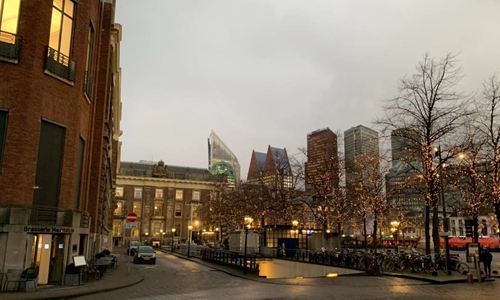HOME >> SOURCE
Brexit opens foreign investment door for Holand
By Bai Tiantian Source:Global Times Published: 2019/12/11 20:39:22
The Netherlands, as well as other European markets, are trying to intercept companies fleeing the UK, as Britain faces the prospect of losing unfettered access to the EU single market.
Since the Brexit referendum, roughly 100 companies or agencies have decided to move part of their business from the UK to the Netherlands, according to data from the Netherlands Foreign Investment Agency (NFIA).
"The number of businesses we are in contact with because of the Brexit is currently 325. The number was 80 at the beginning of last year. So this goes up quite steeply. I expect it to continue to rise because the insecurity that the businesses are faced with is still there," said Jeroen Nijland, Commissioner of NFIA.
The number of foreign direct investment (FDI) in Britain, still the most-preferred European destination for FDI, fell by 13 percent last year. Germany's figure saw a similar decline; while France was flat, Italy and Ireland saw sharp increases, Reuters reported in June.
More than 80 Brexit-related FDI projects have been won by Ireland since the UK voted to leave the EU in June 2016, resulting in the creation of an additional 5,300 jobs, the Irish Times reported.
One of the most important agencies that left the UK for the Netherlands is the European Medicines Agency (EMA), which began operating in Amsterdam in November this year.

Photo: Bai Tiantian/GT
The relocation of the EMA has brought hope to the local government as more life sciences and pharmaceutical companies can be drawn to the Netherlands.
"Most of the companies that decide to come to the Netherlands, they come for the European market," said Nijland. "If you draw a circle of 500 kilometers around the Netherlands, you have 170 million European consumers, which is one-third of the European market. So we are very close to the customers and at the core of European activities. Added to that we have the biggest port of Europe in Rotterdam."
Roughly 375 foreign companies decide to come to the Netherlands every year. Last year, they invested 2.8 billion euros, with further investment plans that will lead to the creation of 10,000 jobs.
Genscript Biotech Corporation, a life sciences company headquartered in Nanjing, East China's Jiangsu Province, established its European office in Leiden, the Netherlands, in 2018.
Liu Zhenyu, president of Genscript Biotech Corporation's European division, said geographical locations, well-developed logistics networks and good universities providing a solid talent base are the reasons his company chose the Netherlands as the location of its European office.
"The Netherlands is in a relatively central location in western Europe from where we can reach our customers within two hours by flight. Logistics here is well developed and convenient, as our operation depends on good logistics. Besides, they have good universities here and most people speak English," said Liu.
According to Nijland, the majority of the foreign investment in the Netherlands comes from the US but China ranks second in terms of the number of projects. Roughly 30 to 35 companies from China set up businesses or expand their existing business in the Netherlands each year, creating 600 jobs.
Nijland admitted winning FDI among European countries is highly competitive.
If a company wants to get into the European market for sales or other activities, then we are competing with Belgium and Germany. If a company wants to set up a European headquarter, then Ireland is a competitor, Nijland said.
Posted in: ECONOMY